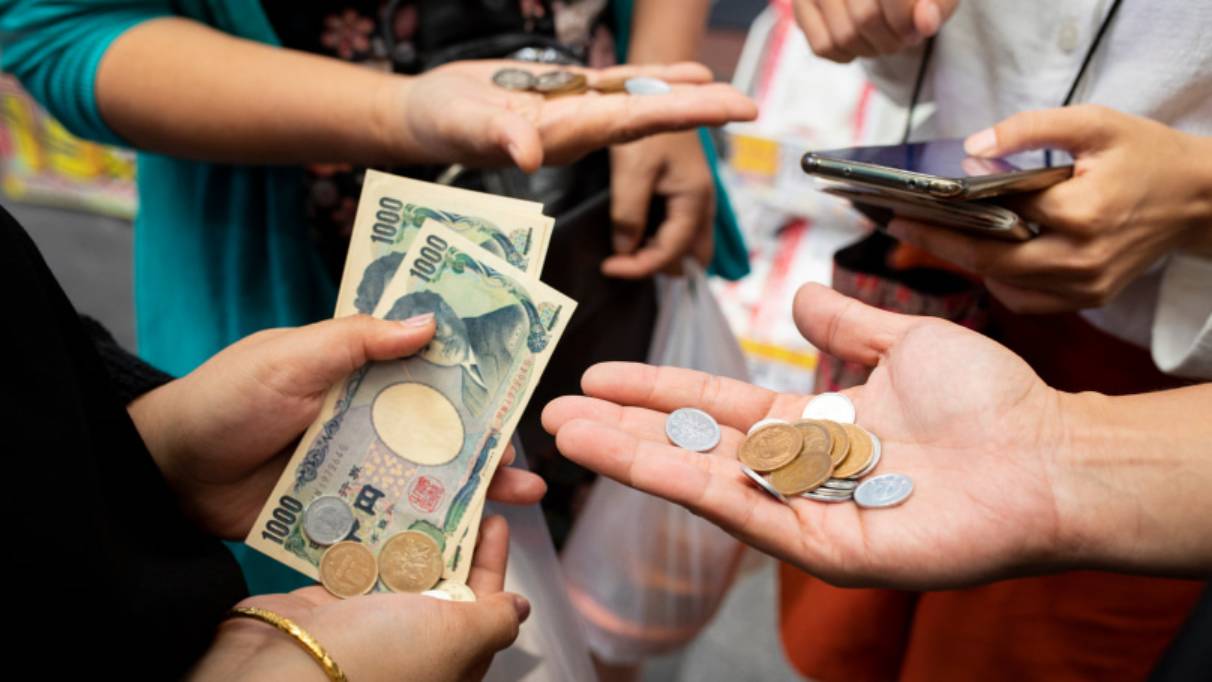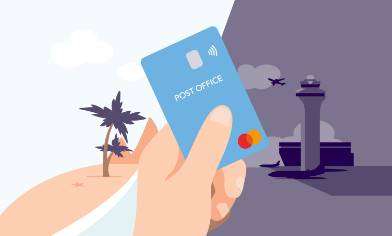1. The trap of counterfeit currency exchange
In many tourist spots, there might be people walking the streets or small booths offering to exchange your money for local currency at rates that sound just too good.
Imagine your family is in the bustling city of Bangkok, ready to explore the vibrant markets. You come across a street vendor offering an unbeatable exchange rate. Be cautious, as they might mix in counterfeit bills with the real ones.
Remember, it’s always safer to head to a well-known bank or an official exchange kiosk inside a shopping centre where your money is guaranteed to be exchanged honestly.
Carrying a prepaid card like the Post Office Travel Money Card can help sidesteps these issues. It allows you to load funds in the currency of your destination ahead of time at known, competitive rates. This way, you can use your card abroad, with added confidence you're not being tricked.
2. The hidden costs of dynamic currency conversion (DCC)
When you're about to buy something or withdraw money in a foreign country, you might be given the option to pay in your home currency. For instance, you’re buying souvenirs in a Parisian shop and the cashier offers to charge you in pounds instead of euros.
While this might seem convenient, it often comes with high fees and poor exchange rates. So you could end up paying more than necessary.
This is known as dynamic currency conversion (DCC), which can lead to uncertain exchange rates and variable additional fees. These fees can fluctuate significantly depending on your location, the transaction handler and market conditions.
Always choose to pay or withdraw in the local currency. In the Paris example, opting to pay in euros could save you money to use for more holiday.
Getting a Travel Money Card can also help you avoid fees when spending abroad. By preloading a balance of the local currency on the card, you’re ready to spend fee-free¹.
As a prepaid multicurrency card you can load with a specific currency before you travel, it enables you to pay in the local currency without fluctuation in fees associated with dynamic currency conversion.
3. The danger of tampered-with ATMs
Just as here in the UK, scammers can fit ATMs overseas with devices that steal your card information, including your PIN. They can use this to access your account.
To protect yourself, use ATMs in secure locations. So, if you find yourself needing cash on a side street in Barcelona, look for a cash machine inside a bank rather than using one on the street. Check for any signs of tampering around the card slot and keypad. And always shield the keypad with your hand when entering your PIN.
These simple choices and checks can significantly reduce the risk of your card information being stolen. Read our guide to how to stay safe on the go, including at cash points.
4. Avoid the short-changing scam
Busy stores and street vendors might intentionally give you incorrect change, hoping you won’t notice. Especially in places with currencies that have many coins or similar-looking notes. Always pause to count your change.
Imagine you’ve just enjoyed gelato in Rome. You pay with a larger note. Even if there’s a queue behind you, take a moment to ensure the change you receive is correct. This quick check can prevent losing money to a simple scam – or an unintentional mistake.
Key takeaways
Ready for a safe and smart family holiday? Keep these tips in mind to protect your money on the move and enjoy your travels to the fullest.
- Bypass unofficial exchange booths and vendors. Stick to exchanging money at official banks or recognised currency exchange offices
- Choose local currency for payments and ATM withdrawals to avoid extra fees
- Use ATMs in secure, indoor locations to protect your card details
- When you buy something, take a moment to check your change
- Take a prepaid currency card and load up the funds you need in advance at know exchange rates































